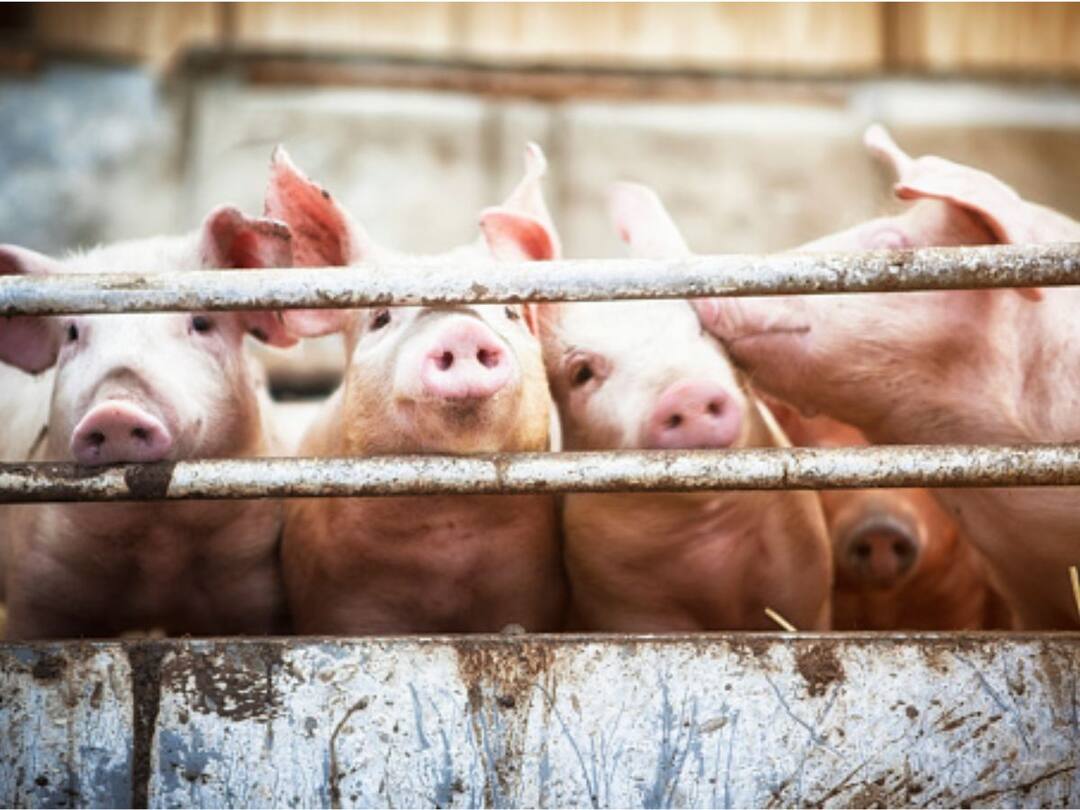Highly Antibiotic-Resistant Strain Of ‘Superbug’ MRSA Found In Pigs Can Infect Humans Too: UK Study
The highly antibiotic-resistant strain of the superbug MRSA is called CC398. It has become the dominant type of MRSA in European livestock in the past fifty years.

A new study led by researchers at the University of Cambridge has found that a highly antibiotic-resistant strain of the superbug MRSA, which stands for methicillin resistant Staphylococcus aureus, has emerged in livestock in the last 50 years. This is probably due to widespread antibiotic use in pig farming.
The highly antibiotic-resistant strain of the superbug MRSA is called CC398. It has become the dominant type of MRSA in European livestock in the past fifty years, and is also a growing cause of human MRSA infections. The new study found that CC398 has maintained its antibiotic resistance over decades in pigs and other livestock, and is capable of rapidly adapting to human hosts while maintaining this antibiotic resistance.
The study describing the findings was recently published in the journal eLife. The paper highlights the potential threat that this strain of MRSA poses to public health. CC398 has been associated with increasing numbers of human infections, in people who have and have not had direct contact with livestock.
What Led To The Evolution Of This Highly Resistant Strain?
In a statement released by the University of Cambridge, Dr Gemma Murray, a lead author on the paper, said historically high levels of antibiotic use may have led to the evolution of this highly antibiotic resistant strain of MRSA on pig farms. She added that the researchers found that the antibiotic resistance in this livestock-associated MRSA is extremely stable, and that it has persisted for several decades. One of the reasons why antibiotic resistance is extremely stable is that the bacteria has spread across different livestock species.
According to the University of Cambridge, antibiotic use in European livestock is much lower than it has been in the past. However, researchers say that ongoing reductions in antibiotic use on pig farms, due to recent policy changes, are likely to have a limited impact on the presence of this strain of MRSA in pigs because it is so stable.
MRSA Does Not Cause Disease In Pigs
The livestock-associated CC398 is found across a broad range of livestock species. The strain is most commonly associated with pigs. The rise in the strain has been particularly evident in Danish pig farms where the proportion of MRSA-positive herds had increased from less than five per cent in 2008 to 90 per cent in 2018. An important fact to note is that MRSA does not cause disease in pigs.
Dr Lucy Weinert, senior author of the paper, said understanding the emergence and success of CC398 in European livestock, and its capacity to infect humans is vitally important in managing the risk it poses to public health.
Ability Of CC398 To Infect Humans Is Linked To Three Mobile Genetic Elements
According to the study, the success of CC398 in livestock and its ability to infect humans is linked to three mobile genetic elements in the MRSA genome which are chunks of genetic material that give the MRSA certain characteristics. These include the resistance of MRSA to antibiotics and its ability to evade the human immune system.
Two Mobile Genetic Elements Confer Antibiotic Resistance In MRSA
The scientists reconstructed the evolutionary history of two particular mobile genetic elements called Tn916 and SCCmec that confer antibiotic resistance in MRSA. They found that the genetic elements have persisted in a stable way in CC398 in pigs over decades and also persist when CC398 jumps to humans. The mobile genetic elements carry with them high levels of resistance to antibiotics commonly used in farming.
A Mobile Genetic Element Helps The MRSA Strain Evade Human Immune System
The researchers found a third mobile genetic element which enables the CC398 strain of MRSA to evade the human immune system. The mobile genetic element was found to have frequently disappeared and reappeared over time, in both human-associated and livestock-associated CC398, suggesting that the strain can rapidly adapt to human hosts.
Weinert said cases of livestock-associated MRSA in humans are still only a small fraction of all MRSA cases in human populations. However, the fact that the cases are increasing is a worrying sign, Weinert added.
Zinc Oxide’s Effect On Pig Farms
The intensification of farming, together with high levels of antibiotic use in livestock, has led to particular concerns about livestock as reservoirs of antibiotic-resistant human infections.
For many years, zinc oxide has been used on pig farms to prevent diarrhoea in piglets. The European Union will ban the use of zinc oxide from June 2022, due to concerns about its environmental impact and its potential promotion of antibiotic-resistance in livestock.
However, the study authors believe that the ban may not help reduce the prevalence of CC398 because the genes conferring antibiotic-resistance are not always linked to the genes that confer resistance to zinc treatment.
MRSA, which was first identified in human patients in 1960, is much harder to treat than other bacterial infections due to its resistance to antibiotics. According to the World Health Organization, MRSA is now one of the world's greatest threats to human health.







































